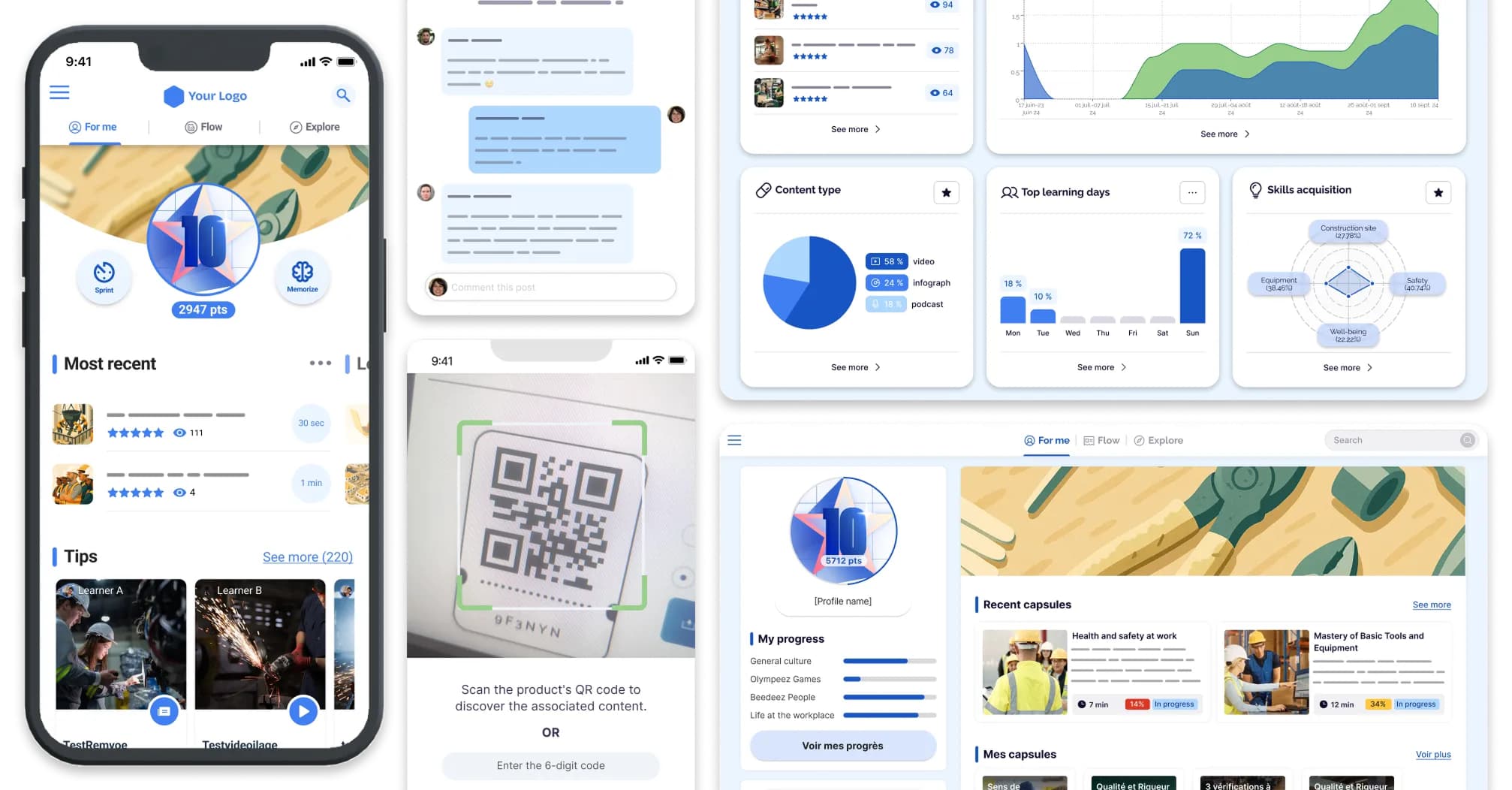At the time when theelearning is growing exponentially, companies are making it a real strategic device. Professional version of MOOC, the COOC has become not only a training tool for company employees, but also a new generation communication device. Sharing experiences and know-how at the end of the day, this online training is also intended to be certifying. What exactly is it about? Who is the training intended for? What are the benefits for the business? Focus on the COOC.
COOC or corporate online open course: definition
The COOC or Corporate Open Online Course is a online vocational training, developed and delivered by a company as part of its activities. Often dedicated to employees or customers of the company, this digital training can also be accessible to all company employees such as prospects or suppliers. It can be used to train learners in new skills or to share the culture of society..
Just like the MOOC or Massive Open Online Course, the COOC includes theoretical courses and practical exercises, whose characteristics depend on the theme addressed as well as on the tools used by the company. The courses can be divided into several modules, depending on the objective of the company. Supports may also vary, but generally, the program includes online courses, videos, and webinars, although some courses may be innovative and use, for example, Story learning with quizzes for example.
Access to this program elearning professional is greatly facilitated thanks to the use of various devices such as computers, smartphones, or tablets. They make it possible to follow the training from various countries in the world via the Internet.
Apart from basic training, most companies give a fun aspect to the COOC, including sharing spaces allowing learners to communicate with each other or to be accompanied by trainers, in an approach that approaches Social learning. In addition, there are symbolic certifications to validate the participation of learners in the training and thus attest to their achievements.
The digital learning objectives of a COOC
The COOC is similar to digital internal training, including the objectives can be educational, social, communicational or even marketing.
By addressing technical topics such as managerial strategies or by training for a new department, for example, The COOC aims to develop the skills of employees internally as well as to facilitate the integration of new employees. This type of training also makes it possible to stimulate collective intelligence in the company and thus improve the functioning of society on many levels.
The COOC also aims to create a team spirit in society and to develop its culture, both internally and in terms of external collaborations. It is a loyalty policy that allows the company to strengthen social ties through the acquisition of know-how.
On the marketing side, The COOC method is used by businesses to seduce their prospects and acquire new customers. Also called “learn marketing”, this online professional training course makes it possible to inform or educate Internet users about a service or a product and thus make them adhere to the spirit of society.
This e-learning program contributes significantly to the construction of the company's e-reputation. Indeed, it is by strengthening its credibility that a company will be able to establish a relationship of trust with its employees and its future customers, which the COOC makes it possible to improve by legitimizing its activities.
Participants in a COOC training
Although the “M” in the MOOC, which refers to the massive nature of the training, has been replaced by a “C”, which means “Corporate” in reference to the courses provided by the company, the COOC is not, however, dedicated to a restricted audience. Whether or not a COOC is private depends solely on the objectives of the training, although this type of e-learning is often dedicated to an audience linked to the company's activities.
Most of the time, an invitation is sent by email to potential participants. They must then register in advance in order to be able to access the courses. Job seekers, entrepreneurs, students, employees, employees, suppliers, suppliers, customers or even prospects of the company can participate in the COOC, depending on the training modules offered. Some COOCs are also accessible to the general public, especially when it comes to lessons about the company's culture or the presentation of a product.
COOCs are not necessarily limited to content transmitted by trainers to learners.. Thanks to the establishment of communities of practice and sharing spaces such as forums, all participants can exchange and help each other directly online. In addition, a COOC is not necessarily 100% digital, but may include practical face-to-face courses. We can then speak of blended learning, or mixed learning between digital and face-to-face, which generally concerns a limited number of participants (small private online course).
Vocational training with the COOC: what are the advantages for the company?
The establishment of internal training consists of a loyalty strategy for the company. Indeed, as employees are in constant search of new skills, the establishment of a COOC allows them to quickly access information without having to search for it outside the company, which encourages them to stay and allows the company to benefit from these freshly acquired skills.
Employees are thus more motivated, especially since their participation in training is rewarded by the presentation of virtual certificates or medals. This practice greatly decreases the dropout rate.
New collaborators, for their part, can also adhere more easily to the culture of the company and thus move forward more safely in their professional project. Credibility, e-reputation and a relationship of trust are all advantages for the company.
Thanks to the use of new technologies, The COOC also allows companies to reduce training costs. For example, multinationals can train all of their employees all over the world, by setting up a single platform. The savings achieved are particularly significant, compared to the expenses associated with traditional training courses.
More and more businesses have adopted COOCs, which allow develop their vocational training effectively and at a lower cost, and even to improve their e-reputation. Employees are generally more interested in this solution than traditional training. It is becoming all the more essential in the offer of vocational training methods.




